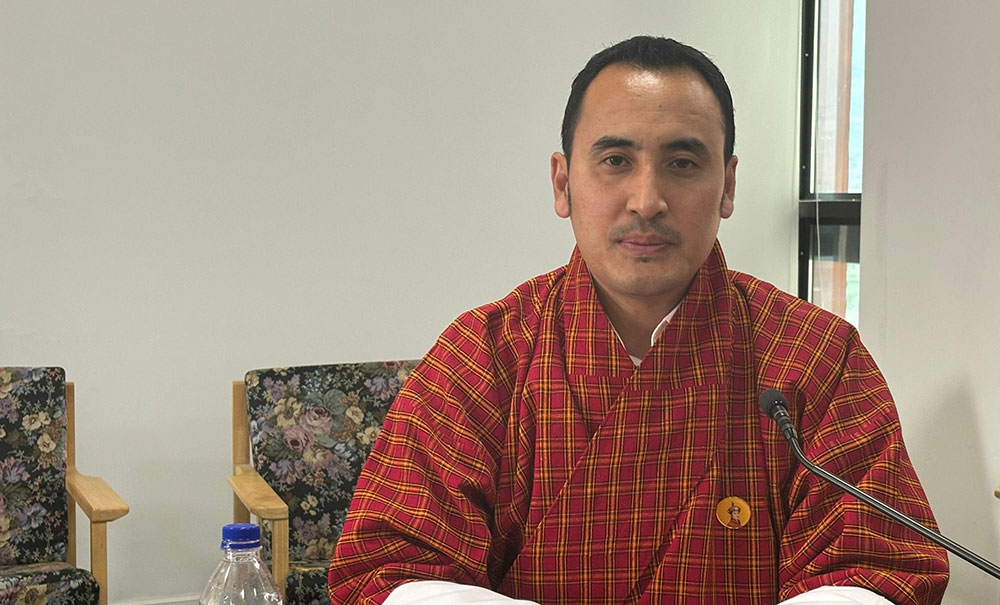Dechen Dolkar
The government will focus on marketing Bhutan to promote tourism and increase tourist arrivals in the country.
On the first day of the new government, the Prime Minister’s Office issued an executive order directing the development of comprehensive action plans aimed at boosting tourist arrivals.
Recommendations were sought to promote tourism in border towns in the South, along with an feasibility study for constructing five airstrips in strategic locations nationwide.
During the Meet-the-Session in Thimphu yesterday, Prime Minister Tshering Tobgay said that following the issuance of the executive order, all relevant stakeholders engaged in discussions and research to explore potential amendments to the policy aimed at promoting tourism.
However, Lyonchhen stated that upon review, it was determined that the Sustainable Development Fee (SDF) policy remains appropriate. “We concluded not to make changes to the SDF, as frequent amendments could potentially confuse tourists.”
Lyonchhen said that frequent amendments to the SDF could disrupt tourist travel and potentially harm the country’s reputation.
The visa processing turnaround time has also decreased, and emergency visa services will be implemented.
However, Lyonchhen said that services must be improved, such as payment gateways, hotels, and roadside amenities.
The SDF incentive for tourists visiting border towns for 24 hours expired this month.
However, Lyonchhen said that the SDF 24-hour waiver would be extended until 2027.
Lyonchhen also said that the government would expedite entry and exit points at border areas like SamdupJongkhar and Gelepbu.
To promote tourism and increase tourist arrivals, Lyonchhen said that focusing on and investing in marketing strategies was important.
Lyonchhen said: “We need to engage in marketing efforts for future outcomes. However, these efforts won’t yield immediate results.”
For example, tourists typically plan their trips at least one year in advance, necessitating a minimum of one year of marketing before tangible results are observed.
“Not everyone has heard of Bhutan. Not everyone sees Bhutan as a tourist destination. Many people want to visit Bhutan, but they feel that it is impossible to come to Bhutan. So we should focus on marketing to reach them,” Lyonchhen said.
The target of 300,000 tourist arrivals, he said, could be achieved easily if marketing was done intelligently. “Tourism is the bedrock of our economy, bringing thousands of jobs.”
The tourism industry has suggested to the government the provision of incentives such as duration discounts after the fifth night to attract the Asian market, as well as group discounts.
Before Covid-19, tourists staying for an extended period received a 50 percent discount on the Sustainable Development Fee (SDF) from the 9th night onwards. Additionally, after 15 nights, tourists were exempt from paying the SDF altogether.
The minister for Industry, Commerce, and Employment, Namgyal Dorji, said that the ministry would review proposals from service providers. “Our aim is to boost tourism numbers.”
For the fiscal year 2023-24, the Department of Tourism has allocated Nu 41 million for marketing efforts.
Tourism service providers have noted that a significant portion of the marketing budget is allocated for government officials’ travel, rather than for promoting tourism through their services.
“If the government could incentivise the service providers who are promoting and marketing Bhutan with the budget allocated for marketing,” tourism service providers said.
“Tourism service providers suggested that if the government could incentivise those who actively promote and market Bhutan using the allocated marketing budget,” they said.
Lyonchhen also mentioned that he has received initial proposals for five locations for the construction of airstrips in strategic areas across the country.
He said: “The government will need to review these proposals carefully as they entail substantial funding.”


